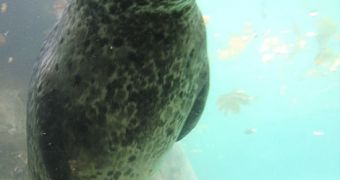Representatives of the Green Party in the United Kingdom drew attention to the fact that the seal populations, an iconic symbol of the North Sea, are declining at an alarming rate. According to the statistics they supplied, between 3,000 and 5,000 seals are shot by licensed hunters each year, as these are the people approved of by the government to do so, in order to protect the fish farm cages off-shore. The main two British parties doubt these numbers, and say that only some 1,000 seals are shot annually.
However, the Sea Mammal Research Unit at St Andrews University supplied the new figures, employed by the Greens, in their bid to obtain a complete ban on the shooting of seals near the coast lines. They argue that these mammals are a clear indicator of the health of the entire marine ecosystem, because they are on top of the food chain. The Scottish parliament is currently being lobbied for the ban, which it seems reluctant to accept.
"They are an iconic symbol of Scottish marine life, but they are also at the top of the food chain and provide us with strong indicators of the health of the marine environment," argues Robin Harper, and MSP for the Lothians. "In addition to the devastation of the Scottish common seal population, we are also seeing rapidly declining populations of Scottish seabirds. This would all seem to indicate that a substantial environmental change is taking place out in the North Sea."
According to the numbers set forth by St Andrews, seal populations declined by some 56 percent between 2000 and 2007, with a 25 percent decrease registered last year alone. Ten percent of the Orkney populations also disappeared last year, alongside a large part of those on the Argyll coast.
"We are calling for a ceasefire for seals with immediate effect and for the comprehensive protection of our globally important seal populations from all deliberate killing before it is too late," added Seal Protection Action Group campaign director, Andy Ottoway, who also said that the Scottish public supported a full ban.

 14 DAY TRIAL //
14 DAY TRIAL //